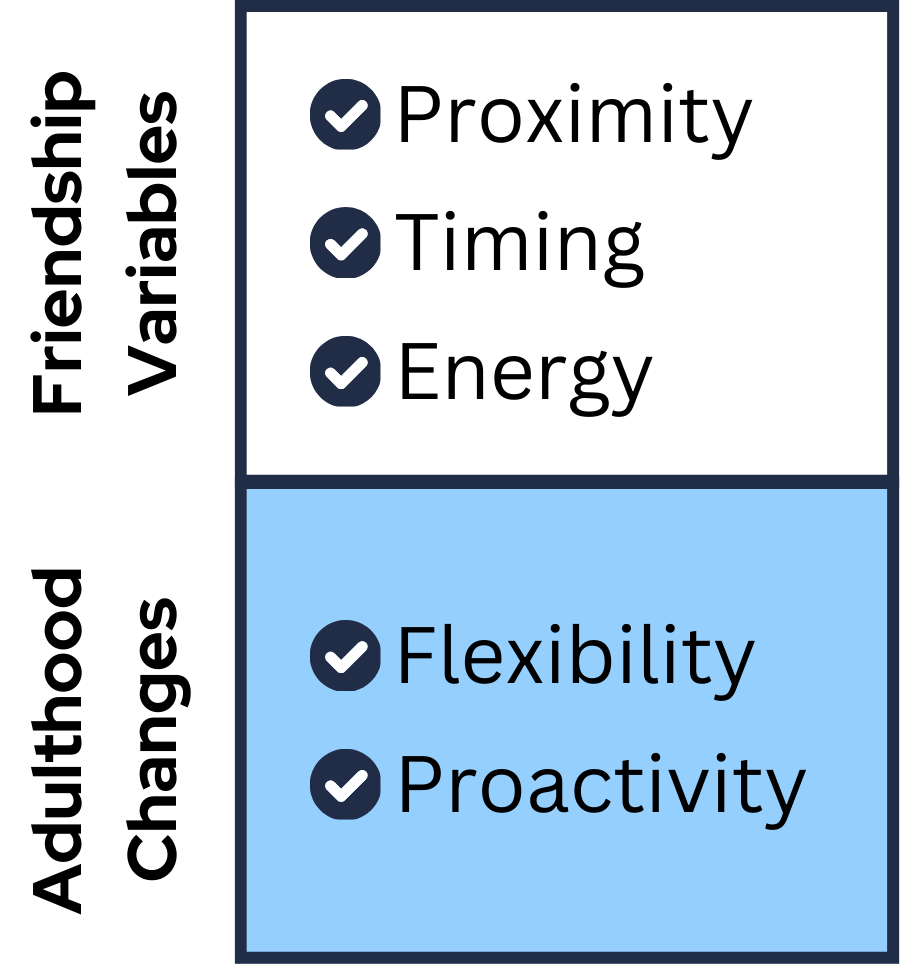Adult Friendship Is Hard!
Why is it so hard to make friends as we get older?
It’s a question at the very core of SIXTOP, and one which I’ve considered quietly in my own head, while also trying to explore with others (including at SIXTOP dinners).
Recently, I came across a snippet of an interview with Mel Robbins on Jay Shetty’s podcast, On Purpose, in which she very concisely and persuasively outlines the root issues I’ve “known” or suspected (the relevant discussion begins at the 1:04:17 mark).
In her framing, everything changes at roughly 20 years of age, when what she calls “the great scattering” happens and everyone starts moving in different directions at different times in different locales. There’s no longer a critical mass of people you know well going to the same game on Friday; “everyone” you know isn’t moving through the same life stage (e.g., graduation, marriage, etc.) at roughly the same time; and, you aren’t living as closely or as intimately with so many people more similar than not to you (in background, mindset, education, interest, etc.).
The resulting loss of effortless group activities, shared milestones, and immediate proximity shifts friendship from a “team sport to an individual sport” that few see coming. Abruptly, you have to plan outings; you have to find new people; you have to adjust, because it no longer “just happens” anymore. When compounded by time and the circumstances of life (e.g., moving, divorce, etc.), this shift has dramatic and oftentimes negative consequences.
In Mel’s view, there are two keys to developing and maintaining adult friendships: Flexibility and proactivity. She believes that adults have to allow friendships to be more varied and adaptable, as circles change over time. It’s rarely personal when friendships fizzle out; rather, one of the three primary variables – proximity, timing, and energy – has simply shifted, and that’s OK (because it will almost certainly shift again). To compensate, she suggests taking a much more active approach to friendship – reaching out in new ways to meet new people, being the one to develop plans, getting a little uncomfortable by putting yourself “out there,” etc.
It’s hard to be socially proactive as an adult. It takes work. It takes energy. It takes time. It takes will. And it takes courage. It’s the rare individual willing and able to risk it all (at least, that’s the way it feels) to develop new friendships out of relatively thin air.
SIXTOP is my way of both being more proactive personally and making it easier for others to find new ways to connect. By bringing together small groups of neighbors over dinner at local restaurants, SIXTOP makes it effortless to socialize on a very local basis. It’s not a perfect solution, and it takes a certain type of openness to break bread with a table of strangers, but it is effective. And fun. Plus, you’ll eat damn well.
Dining with strangers may seem unconventional — and uncomfortable for some — but it offers a refreshing, low-pressure way for adults to build friendships, while nourishing our collective mental, emotional, and psychological health.



